Prem Dhawan
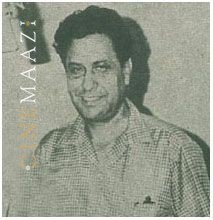
Subscribe to read full article
This section is for paid subscribers only. Our subscription is only $37/- for one full year.
You get unlimited access to all paid section and features on the website with this subscription.
Not ready for a full subscription?
You can access this article for $2 , and have it saved to your account for one year.
- Born: 13 June 1923 (Ambala)
- Died: 7 May 2001 (Mumbai)
- Primary Cinema: Hindi
The choreographer-poet Prem Dhawan was born on 13 June 1923 in Ambala. His father was a warden at the Lahore jail, and he grew up in the city. After graduating from FC College, he moved to Bombay to join the Indian People’s Theatre Association. In Bombay, Prem Dhawan met Pandit Ravi Shankar, Salil Chowdhury, Balraj Sahni, Kaifi Azmi, Chetan Anand and Dina Pathak. He also had the opportunity to train in dance and music under the tutelage of the Shankar brothers, Uday and Ravi.
Prem Dhawan was used to write primarily patriotic music following his association with IPTA. When one of his post-independence poems, Jhoom jhoom ke nacho aaj, was performed in Mumbai at a poetry recitation, it caught the ear of Naushad. Naushad asked him to write some lyrics for his songs, but Dhawan was already engaged with Bombay Talkies at the time. He started working as an assistant to the composer Khurshid Anwar in 1946. He got his first break as a lyricist when he wrote songs for Dharti Ke Lal (1946), the directorial debut of K.A. Abbas. The music for the film was composed by Pandit Ravi Shankar.
The song Chanda re ja re for Bombay Talkies’ Ziddi (1948) made Prem Dhawan a lyricist of choice in the industry. In the following years, he wrote songs like Aayi bahar aayi bahar (Arzoo, 1950), Seene mein sulagte hai and Nain mile nain hue baware (Tarana, 1951), Badli teri nazar to (Bari Bahoo, 1951), Mast pawan hai (Jeet, 1949), Balma ja ja (Aaram, 1951), Ek pal ruk jana (Rahi, 1952), Te ki main jhooth boliya (Jagte Raho, 1956), Ritu aaye re ritu jaye re sakhi ri (Hamdard, 1953), Dil ko lakh sambhala ji (Guest House, 1959), Sab kuch luta ke hosh mein (Ek Saal, 1957), Chhodo kal ki baatein (Hum Hindustani, 1960), Ae mere pyare watan (Kabuliwala, 1961), Mera rang de basanti chola (Shaheed, 1965), Ye parda hata do (Ek Phool Do Mali, 1969) and Teri duniya se hoke majboor (Pavitra Papi, 1970).
His prominent associations were with the composers Anil Biswas, Salil Chowdhury and Chitragupt. Chitragupt, in particular, had most of his songs penned by Prem Dhawan. The two first worked together in Guest House, and continued to collaborate for films like Adhi Raat Ke Baad (1965), Bezuban (1962) and Rocket Girl (1962).
Prem Dhawan also performed as a dancer with Cuckoo for the song Ari o mohe chhed gaya in Singaar (1949). The song was set to tune by Khurshid Anwar. Dhawan worked as a choreographer for songs like Hariyala sawan dhol bajata aaya (Do Bigha Zamin, 1953) and Udi jab jab zulfe teri (Naya Daur, 1957).
For his work on the landmark Punjabi-language film Nanak Dukhiya Sub Sansar (1970), Prem Dhawan won the National Film Award for Best Lyrics in 1971. He was also felicitated with the Padmashri Award in 1970 for him immense contribution to the world of cinema.
Retiring from films in the early ‘80s, Prem Dhawan spent his time reading and writing in his house. He passed away on 7 May 2001 in Mumbai.
References
- https://mehfilmeinmeri.wordpress.com/2018/05/07/my-favourites-by-prem-dhawan/
- Dhuno Ki Yatra, pg. 610-611
-
Filmography (8)
SortRole
-
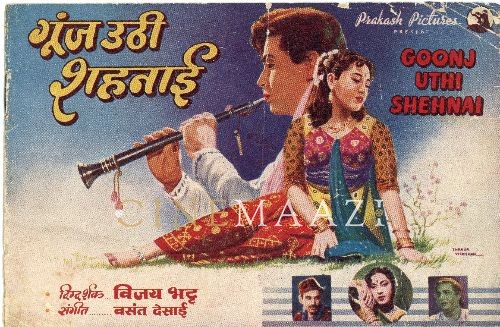
Goonj Uthi Shehnai 1959
-
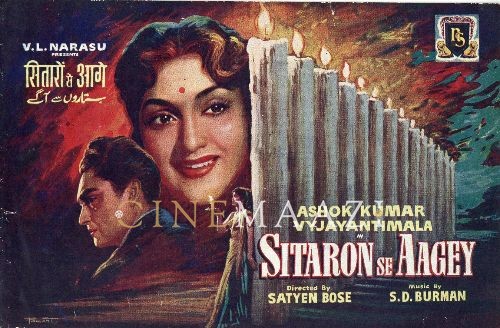
Sitaron Se Aagey 1958
-
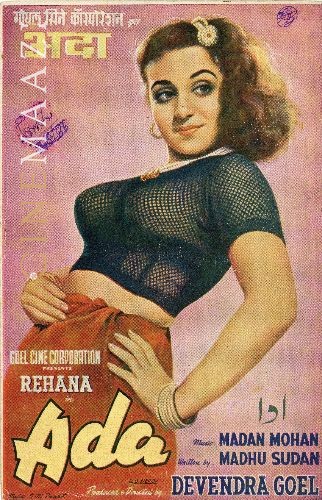
Ada 1951
-

Putli 1950
-
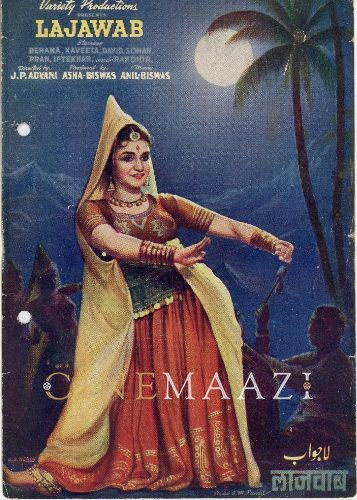
Lajawab 1950
-
Hindustan Hamara 1950
-
Ram Vivah 1949
-
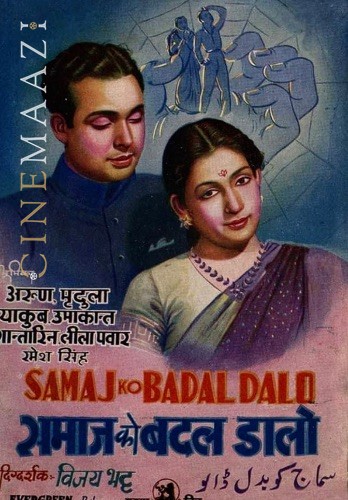
Samaj Ko Badal Dalo 1947
-









.jpg)



